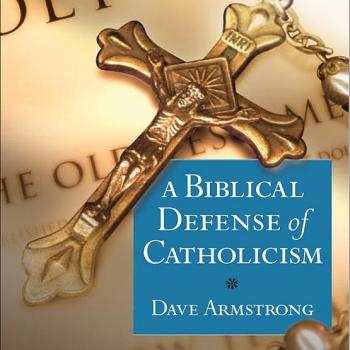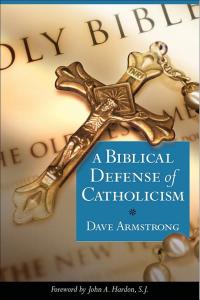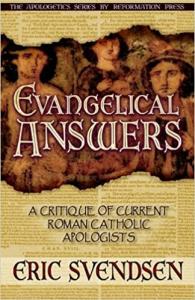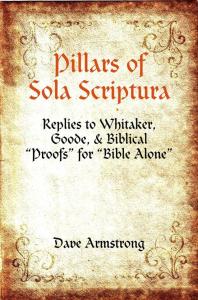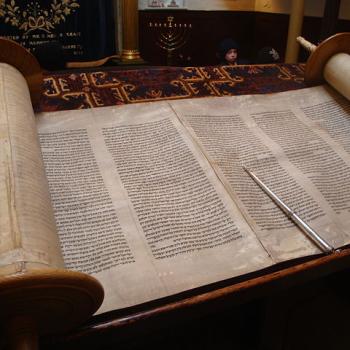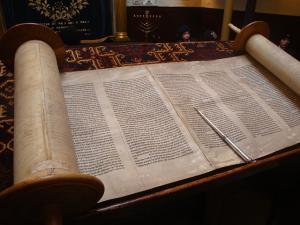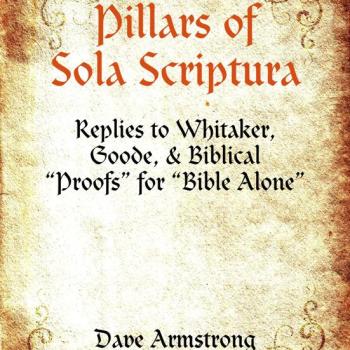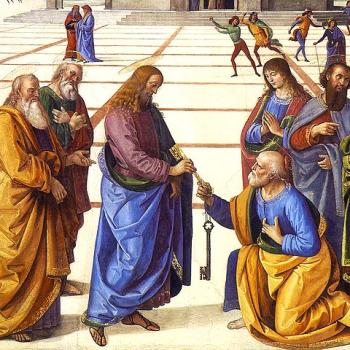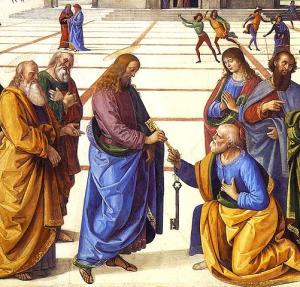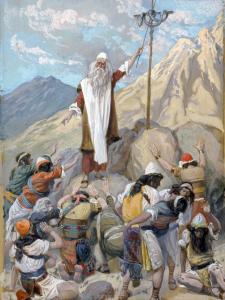
Gavin Ortlund is an author, speaker, and apologist for the Christian faith, who serves as the senior pastor of First Baptist Church of Ojai in Ojai, California. Gavin has a Ph.D. from Fuller Theological Seminary in historical theology, and an M.Div from Covenant Theological Seminary. He is the author of seven books as well as numerous academic and popular articles. For a list of publications, see his CV. He runs the YouTube channel Truth Unites, which seeks to provide an “irenic” voice on theology, apologetics, and the Christian life.
I greatly admire and appreciate Gavin’s ecumenical methodology, and viewpoint. It’s extremely refreshing to hear in this hyper-polarized age. He is an exemplary Christian role model of this open-minded, charitable approach. We all learn and “win” when good, constructive dialogue takes place. It’s never a “loss” to arrive at more truth or to recognize one’s own error.
*****
This is a reply to Gavin’s video, “Venerating Icons: A Protestant Critique” (9-4-21). Gavin’s words will be in blue.
Gavin provides much helpful irenic, explanatory material at the beginning: urging Protestants not to be quick to judge Orthodox (and/or Catholic) practices with regard to icons and images. Good for him for doing so. He’s obviously read quite a bit on the subject. I personally thank him for taking the time to do that.
He says that the Bible is very severe against idolatry (virtually above any other emphasis). Indeed it is. The great, incalculably grave and spiritually deadly sin of idolatry is putting anything else above God, or in His place. The question will be whether icons are essentially, intrinsically idols (I say no), or whether some folks distort their meaning and purpose and treat them like idols (certainly; error is always with us, and corrupts every good thing). We can’t say that icons are never idols in the heart of some who utilize them, because human beings always fall short of the ideal. But there is a biblical basis for icons, as I will show.
As I have said in past replies to Gavin (notable in my replies about the intercession of saints and relics), the Protestant tendency and “solution” is to get rid of anything that has ever become distorted in practice. And as I said, this is hardly practical or sensible, since the Bible would be the first thing to have to be discarded, following such a methodology. We don’t get rid of things that are corrupted. We reform erroneous and blasphemous, idolatrous practices and properly educate people. As the old saying goes, we mustn’t “throw the baby out with the bathwater.”
He mentions the prohibition of idolatrous images in the Ten Commandments (Ex 20:4-5; he later cited the similar passage Lev 26:1). The problem with Protestants and this, is that (too often, especially in the Calvinist tradition) they interpret it absolutely and with no sense of the many exceptions as to the use of images in worship and veneration, etc., also plainly sanctioned in the Old Testament. The temple and tabernacle had many images, for heaven’s sake, so this clearly was not an absolute prohibition. The ark of the covenant had images of angels on top of it. God commanded the construction (giving minute detail) of all three of those sacred things.
Let’s be very clear as to what constitutes an idol and what idolatry is. To be an idolater is fundamentally to put something in place of God. An animist who is truly worshiping a statue of wood or stone or amulet as God in and of itself (i.e., over against the true, one Creator God) is a true idolater.
As for the “graven image” of Exodus 20:4: what God was forbidding was idolatry: making a stone or block of wood God. The Jews were forbidden to have idols (like all their neighbors had), and God told them not to make an image of Him because He revealed Himself as a spirit. The KJV and RSV Bible versions use the term graven image at Exodus 20:4, but many of the more recent translations render the word as idol (e.g., NASB, NRSV, NIV, CEV).
Context makes it very clear that idolatry is being condemned. The next verse states: “You shall not bow down to them or worship them” (NIV, NRSV). In other words, mere blocks of stone or wood (“them”) are not to be worshiped, as that is gross idolatry, and the inanimate objects are not God. This does not absolutely preclude, however, the notion of an icon, where God is worshiped with the help of a visual aid.
Idolatry is a matter of disobedience in the heart towards the one true God.
The following passages bring out the distinction I am drawing:
Psalm 115:3-8 (RSV) Our God is in the heavens; he does whatever he pleases. [4] Their idols are silver and gold, the work of men’s hands. [5] They have mouths, but do not speak; eyes, but do not see. [6] They have ears, but do not hear; noses, but do not smell. [7] They have hands, but do not feel; feet, but do not walk; and they do not make a sound in their throat. [8] Those who make them are like them; so are all who trust in them. (cf. 135:15-18)
Isaiah 2:8 Their land is filled with idols; they bow down to the work of their hands, to what their own fingers have made.
Judith 8:18-20 For never in our generation, nor in these present days, has there been any tribe or family or people or city of ours which worshiped gods made with hands, as was done in days gone by — [19] and that was why our fathers were handed over to the sword, and to be plundered, and so they suffered a great catastrophe before our enemies. [20] But we know no other god but him, and therefore we hope that he will not disdain us or any of our nation.
Wisdom of Solomon 14:8 But the idol made with hands is accursed, and so is he who made it; because he did the work, and the perishable thing was named a god.
Acts 7:41 And they made a calf in those days, and offered a sacrifice to the idol and rejoiced in the works of their hands.
Acts 19:26 And you see and hear that not only at Ephesus but almost throughout all Asia this Paul has persuaded and turned away a considerable company of people, saying that gods made with hands are not gods. [stated by Demetrius, a craftsman in Ephesus who made idols and shrines: see 19:24-25]
Revelation 9:20 The rest of mankind, who were not killed by these plagues, did not repent of the works of their hands nor give up worshiping demons and idols of gold and silver and bronze and stone and wood, which cannot either see or hear or walk;
In other words, the prohibition was not of all images, but of images specifically intended to be idols: that is, worshiped instead of the one true God.
Gavin distinguishes between worshiping idols and venerating icons. But he stresses that there has been a constant danger or “temptation” throughout history of men making images into idols to worship and replace God with. Granted. I totally agree with that.
He says that in the first three hundred years o Church history, he knows of no practice of veneration of images, and much rhetoric against it. He cites Origen: “Being taught in the school of Jesus Christ, have rejected all images and statues.” Origen stated that Christians “avoid temples, altars, and images.” This comes from Against Celsus, Book VII, chapters 41 and 64. Origen was simply wrong. He has the same fallacious and unbiblical, hyper-legalistic reasoning that would surface again and again in the iconoclasts of the east, and in Calvinism and more radical Protestant sects in the 16th century.
Note how Origen includes temples and altars in the prohibition. I think the Bible and the apostles can show us the way here, in inspired Holy Scripture (certainly a higher authority than Origen, on his own). According to Acts 3:1 (right after the Day of Pentecost), “Peter and John were going up to the temple at the hour of prayer, the ninth hour.” A lame man saw “Peter and John about to go into the temple” (Acts 3:3). The notes in my RSV explain that the ninth hour was 3 PM “when sacrifice was offered with prayer (Ex 29.39; Lev. 6.20; Josephus, Ant. xiv.4.3).” So that is both temple and altar. Acts 2:46 described the early Christians as “day by day, attending the temple together.” St. Paul is still observing Jewish ritual at the temple long after his conversion to Christ:
Acts 21:6-7 Then Paul took the men, and the next day he purified himself with them and went into the temple, to give notice when the days of purification would be fulfilled and the offering presented for every one of them. [27] When the seven days were almost completed, the Jews from Asia, who had seen him in the temple, stirred up all the crowd, and laid hands on him,
Jesus assumed that His Jewish followers would still present offerings at the temple:
Matthew 5:23-24 So if you are offering your gift at the altar, and there remember that your brother has something against you, [24] leave your gift there before the altar and go; first be reconciled to your brother, and then come and offer your gift.
Why does the book of Revelation repeatedly refer to an altar in heaven (6:9; 8:3, 5; 9:13; 11:1; 14:18; 16:7), if altars were supposedly to be banished in Christianity, according to Origen? Isn’t that odd? Images in worship are bad, and to be “rejected” and “avoided”? Origen seems to have almost been biblically illiterate. The ancient Jews worshiped God via images, and this is perfectly acceptable, as presented in the Old Testament:
Exodus 33:8-10 Whenever Moses went out to the tent, all the people rose up, and every man stood at his tent door, and looked after Moses, until he had gone into the tent. [9] When Moses entered the tent, the pillar of cloud would descend and stand at the door of the tent, and the LORD would speak with Moses. [10] And when all the people saw the pillar of cloud standing at the door of the tent, all the people would rise up and worship, every man at his tent door.
Note that the pillar of cloud is:
1) a creation (water, if a literal cloud);
2) visual, hence an image;
and
3) thought to directly represent God Himself.
It’s also a supernatural manifestation, which is a major difference compared to any true idol made by the hands of men; but that would make no difference for those who mistakenly hold that any image whatsoever associated with God is impermissible. The problem comes when God Himself expressly sanctions such images, and worship in conjunction with them, as here.
The same iconoclasts (opposers of images) have to explain away things like the burning bush (Ex 3:2-6), which is not only fire, but also called an “angel of the Lord” (Ex 3:2), yet also “God” (3:4, 6, 11, 13-16, 18; 4:5, 7-8) and “the LORD” (3:7, 16, 18; 4:2, 4-6, 10-11, 14) interchangeably. An angel is a creation (as is fire and cloud); yet God chose to use a created being and inanimate objects to visibly represent Him. Several similar instances occur in the Old Testament. Moreover, the Jews “worshiped” fire as representative of God in the following passage:
2 Chronicles 7:1-4 When Solomon had ended his prayer, fire came down from heaven and consumed the burnt offering and the sacrifices, and the glory of the LORD filled the temple. [2] And the priests could not enter the house of the LORD, because the glory of the LORD filled the LORD’s house. [3] When all the children of Israel saw the fire come down and the glory of the LORD upon the temple, they bowed down with their faces to the earth on the pavement, and worshiped and gave thanks to the LORD, saying, “For he is good, for his steadfast love endures for ever.” [4] Then the king and all the people offered sacrifice before the LORD.
The biblical evidence for physical objects as aids in worship is legion. Rather than cite all those, I’ll refer to my article that compiles many examples. See also further biblical evidence regarding candles, incense, and other such symbolism. I went through the many instances of bowing down to the ark of the covenant, the temple, Jerusalem, etc., in my reply to Gavin on relics, after he expressed an objection to Catholics bowing to them. So I need not repeat that here. The biblical data in this area is massive. But I suppose one might still ask: “Where do we find a physical object being venerated or shown honor, similar to an icon?” Here’s their answer:
Joshua 7:6-7 Then Joshua rent his clothes, and fell to the earth upon his face before the ark of the LORD until the evening, he and the elders of Israel; and they put dust upon their heads. [7] And Joshua said, “Alas, O Lord GOD, why hast thou brought this people over the Jordan at all, to give us into the hands of the Amorites, to destroy us? Would that we had been content to dwell beyond the Jordan!
Since there were carved cherubim (a type of angel) on top of the ark, we know that wherever there is bowing, prayer, and/or worship in Scripture, as related to the ark of the covenant either outside the temple or tabernacle, or in them, that statues (of cherubim / angels) were present. So this is a biblical apologia for the Catholic use of statues in devotion (see more on this). And this is also true of any bowing, prayer, and/or worship in or near the temple. That’s an awful lot of statuary or other images! Yet we are to believe that these most sacred acts of the ancient Jews were fundamentally idolatrous, and that anything even approximating these actions in Christianity is also idolatrous? It strains credulity to the breaking point.
There is also a biblical argument to be made for the use of crucifixes.
Moreover, we have the example of Moses’ bronze serpent. Protestants can and will rightly point out that it was later ordered to be destroyed. They’re exactly right. The righteous king of Judah, Hezekiah, did that. But let’s take a deeper look at that. It will be seen to support the Orthodox and Catholic view, not Protestant iconoclasm:
Numbers 21:6-9 Then the LORD sent fiery serpents among the people, and they bit the people, so that many people of Israel died. [7] And the people came to Moses, and said, “We have sinned, for we have spoken against the LORD and against you; pray to the LORD, that he take away the serpents from us.” So Moses prayed for the people. [8] And the LORD said to Moses, “Make a fiery serpent, and set it on a pole; and every one who is bitten, when he sees it, shall live.” [9] So Moses made a bronze serpent, and set it on a pole; and if a serpent bit any man, he would look at the bronze serpent and live.
2 Kings 18:4 He removed the high places, and broke the pillars, and cut down the Ashe’rah. And he broke in pieces the bronze serpent that Moses had made, for until those days the people of Israel had burned incense to it; it was called Nehush’tan.
These passages teach us many things. Iconoclastic Calvinists (those who oppose all use of images whatever in Christian worship or piety) argue that they can never be used, and that their use always constitutes “idolatry” regardless of one’s intentions or inner state of mind. But these two Bible passages establish many “Catholic” elements (ones anathema to many Protestants):
1) The bronze serpent not only is a foreshadowing of Christ on the cross (John 3:14: “And as Moses lifted up the serpent in the wilderness, so must the Son of man be lifted up”), but also an instance of a “sacramental” aid: use of a physical thing in order to grant more grace or spiritual power or pardon. The people had to do something: look at the serpent — not merely abstractly believe that God would pardon them.
2) It shows, moreover, that visual aids in receiving pardon and life (by analogy, salvation) from God are perfectly permissible: indeed, expressly commanded by God in this instance.
3) Thus, there is an image that is not a ”graven image” — forbidden by the Ten Commandments. Not all images in spirituality and worship are bad and wicked by their mere existence, apart from how people use them.
4) 2 Kings 18:4 again reveals to us that it was not the image itself that was inherently wrong, but a corrupt use of it. The proper use was explained by God in the earlier passage. The improper, sinful, wicked use was burning incense to it, because that implies that it is an idol, with the power of God. It then replaces God in a way that it did not in its proper use and becomes an idol: precisely due to how people regard it: not in and of itself, by its own essence. This shows that idolatry is a matter of the intentions of the ones engaging in the sin.
5) The same principle is also illustrated by the temple itself: it was the house of God only so long as the Hebrews followed God’s commandments. Thus, three temples were built, and three were destroyed in judgment after the Jews had sunk into idolatry. The temples had ornate visual ornamentation, including large statues of cherubim and other paintings of symbols. Those were not idols as originally intended, but when the Jews went astray, the inner meaning of the temple was corrupted and God was all too willing to destroy His own “house.” Solomon’s temple (1 Kings 6:23-35) had been approved by God (“I have consecrated this house which you have built” — 1 Kings 9:3). The prophet Jeremiah expressly states this notion:
Jeremiah 7:3-14 Thus says the LORD of hosts, the God of Israel, Amend your ways and your doings, and I will let you dwell in this place. [4] Do not trust in these deceptive words: `This is the temple of the LORD, the temple of the LORD, the temple of the LORD.’ [5] “For if you truly amend your ways and your doings, if you truly execute justice one with another, [6] if you do not oppress the alien, the fatherless or the widow, or shed innocent blood in this place, and if you do not go after other gods to your own hurt, [7] then I will let you dwell in this place, in the land that I gave of old to your fathers for ever. [8] “Behold, you trust in deceptive words to no avail. [9] Will you steal, murder, commit adultery, swear falsely, burn incense to Ba’al, and go after other gods that you have not known, [10] and then come and stand before me in this house, which is called by my name, and say, `We are delivered!’ — only to go on doing all these abominations? [11] Has this house, which is called by my name, become a den of robbers in your eyes? Behold, I myself have seen it, says the LORD. [12] Go now to my place that was in Shiloh, where I made my name dwell at first, and see what I did to it for the wickedness of my people Israel. [13] And now, because you have done all these things, says the LORD, and when I spoke to you persistently you did not listen, and when I called you, you did not answer, [14] therefore I will do to the house which is called by my name, and in which you trust, and to the place which I gave to you and to your fathers, as I did to Shiloh.
If my choice comes down to all of this Bible vs. Origen and some other Church fathers who simply didn’t understand the above teaching of the Bible, I go with the Bible (as I always do if there is a contrary choice to it).
You get this sense from a lot of these early Christians that there’s a very strong, almost allergic reaction to the surrounding pagan practices . . . [leading to] a wholesale rejection of icons. [12:32-51]
Well, that’s just it. The fathers who did this fell into the very human and unfortunately common reaction of going from one extreme (error) to the other extreme (also an error). They observed true pagan idolatry, by use of images, and so they concluded that all images are evil. That doesn’t follow. A corruption of a thing is not the thing itself.
Some Church fathers also had a tendency of reacting so strongly against pagan immoral sexuality, that they started thinking that moral, biblically mandated sexuality was evil or had some sort of “scandal” always attached to it, as if we should be ashamed of one of the great gifts that God gave us; as if all sexual desire must be sinful lust.
Gavin cites Lactantius, who stated that “there is no doubt that there is no religion where there is an image.” This is biblically illiterate as well. I would love to have him appear in my room and engage in dialogue with me about the proper interpretation of all the Bible passages I set forth above. I am going by biblical teaching. I think — with all due respect — he and Origen are reacting emotionally and going to extremes: making wicked what isn’t wicked at all, rightly understood and practiced. This is not good.
Gavin cites the Council of Elvira, from early in the 4th century in Spain (some — like Hefele — think it was in 306 AD). Its canon 36 stated: “Pictures are not to be placed in churches, so that they do not become objects of worship and adoration.” One can always look deeper into things. The Catholic Encyclopedia article, “Council of Elvira” (1909), stated:
Canon xxxvi (placuit picturas in ecclesia esse non debere ne quod colitur et adoratur in parietibus depingatur) has often been urged against the veneration of images as practised in the Catholic Church. Binterim, De Rossi, and Hefele interpret this prohibition as directed against the use of images in overground churches only, lest the pagans should caricature sacred scenes and ideas; Von Funk, Termel, and Dom Leclerq opine that the council did not pronounce as to the liceity or non-liceity of the use of images, but as an administrative measure simply forbade them, lest new and weak converts from paganism should incur thereby any danger of relapse into idolatry, or be scandalized by certain superstitious excesses in no way approved by the ecclesiastical authority. . . . (See text and commentary in Hefele-Leclercq, “Hist. des Conciles.” [History of Church Councils] I, 212 sqq.)
If Gavin wants to argue that the general lack of sanction of images in the first three centuries of the Church is fatal to the notion, I would point out that many doctrines were pretty undeveloped at the same time. St. John Henry Cardinal Newman observed along these lines:
If the Imperial Power checked the development of Councils, it availed also for keeping back the power of the Papacy. The Creed, the Canon, in like manner, both remained undefined. The Creed, the Canon, the Papacy, Ecumenical Councils, all began to form, as soon as the Empire relaxed its tyrannous oppression of the Church. And as it was natural that her monarchical power should display itself when the Empire became Christian, so was it natural also that further developments of that power should take place when that Empire fell. (Essay on the Development of Christian Doctrine, 1878 edition, Univ. of Notre Dame Press, 1989, pp. 148-155; Part 1, Chapter 4, Section 3)
Gavin agrees with this to some extent, by saying: “With the conversion of Constantine, things change. A lot changes overnight” [14:39-14:45]. He agrees that in the fourth century, images start to appear in churches. But let’s briefly look at the development of the biblical canon in this early time period:
In the period up to 140, the Book of Acts was scarcely known or quoted. Quotations from the apostle Paul were rarely introduced as scriptural. The books of Hebrews, James, 1 and 2 Peter, 1, 2, and 3 John, Jude, and Revelation were not considered to be part of the canon, and most of these books weren’t accepted by consensus as biblical until the end of the 4th century. In the period of 160-250, the Shepherd of Hermas was considered part of the New Testament by Irenaeus, Tertullian, Origen, and Clement of Alexandria. Even in the early 5th century, 1 Clement and 2 Clement were included in the biblical manuscript: Codex Alexandrinus.
Is this information just my own “amateur” opinion, or gathered from Catholic apologists or official Catholic Church sources? No. It all came from solid Protestant scholarly reference works:
1) J. D. Douglas, editor, New Bible Dictionary, Grand Rapids, Michigan: Eerdmans, 1962 edition, 194-198.
2) F. L. Cross and E. A. Livingstone, editors, The Oxford Dictionary of the Christian Church, Oxford: Oxford Univ. Press, 2nd edition, 1983, 232, 300, 309-10, 626, 641, 724, 1049, 1069.
3) Norman L. Geisler & William E. Nix, From God to Us: How We Got Our Bible, Chicago: Moody Press, 1974, 109-12, 117-125.
If there was all this uncertainty about the Bible itself, why is it considered an issue that the veneration of images and icons was nowhere near fully developed in this same period? It’s ultimately a non-issue. But there is far more Scripture about images in worship than there is about the canon of Scripture. Peter calls Paul’s writings “Scripture” but, alas, he doesn’t say which ones.
Gavin notes that images are at first used as teaching aids, but not venerated. We would fully expect this. Development proceeds slowly. As things are thought about and pondered (and opposed), they start to develop more rapidly. But as I have shown, all the rationale needed was already present in the Bible. It was slowly realized and fully understood over time.
What I’m opposed to is venerating them [icons], and bowing down to them and things like that, and I think that that is wrong to do. [16:50-57]
I think Gavin would benefit by examining the scriptural arguments I have made above and to either accept that they provide a rationale for veneration of icons or to explain the passages otherwise than as I have, and as Catholics and Orthodox have through the centuries. Note that he thinks all such veneration is wrong. It’s not just a corrupt practice of veneration that he opposes. I don’t see that he would be able to also characterize all analogous instances of use of images and veneration in Scripture as likewise wrong. That’s his task and burden, and if we get to that, then this will truly be a serious and much more substantive, “meaty” exchange. I hope when he ends his sabbatical from social media in the month of May that he will take me up on this and several other recent critiques.
He mentions the argument from images in the Old Testament (one that I have made above), and adds: “No one was bowing down to or kissing the cherubim on the ark of the covenant.” [17:21-29] Joshua bowed before the ark, which included these cherubim:
Joshua 7:6-7 Then Joshua rent his clothes, and fell to the earth upon his face before the ark of the LORD until the evening, he and the elders of Israel; and they put dust upon their heads. [7] And Joshua said, [a prayer] . . .
The ark also included, in effect, relics: Aaron’s staff, the tablets of the Ten Commandments, and a golden urn with manna (Heb 9:4). To be by the ark was to “stand before the LORD to minister to him” (Dt 10:8; cf. 1 Ki 3:15; 8:5; 1 Chr 16:4; 2 Chr 5:6). The ark was so sacred because God was literally said to be there (as in the Holy Eucharist and consecrated hosts): especially between the two cherubim:
Exodus 25:22 There I will meet with you, and from above the mercy seat, from between the two cherubim that are upon the ark of the testimony, I will speak with you of all that I will give you in commandment for the people of Israel. [carved statues on the ark of the covenant]
Exodus 30:6 And you shall put it before the veil that is by the ark of the testimony, before the mercy seat that is over the testimony, where I will meet with you. (cf. Lev 16:2) [mercy seat on the ark of the covenant]
Numbers 7:89 And when Moses went into the tent of meeting to speak with the LORD, he heard the voice speaking to him from above the mercy seat that was upon the ark of the testimony, from between the two cherubim; and it spoke to him. (cf. 1 Sam 4:4; 2 Sam 6:2; 2 Ki 19:15; 1 Chron 13:6; Ps 80:1; 99:1; Is 37:16; Ezek 10:4; Heb 9:5) [carved statues on the ark of the covenant]
Thus, when the high priest was praying directly to God or worshiping him next to the ark of the covenant, he would have been looking directly at the cherubim. How that is not veneration of an image at all or the “absence” of objects in worship, or idolatry, is, I confess, completely beyond my understanding.
I imagine they didn’t kiss the cherubim on the ark, based on the experience of Uzzah, who was instantly killed by God because he touched the ark to prevent it from falling down (2 Sam 6:1-7; 1 Chr 13:9-12). But Joshua bowed down before it and them, and prayed to God.
The Jews bowed down before the pillar of cloud, to worship God (Ex 33:8-10, cited above). That’s an image. They did the same with fire in the temple (2 Chr 7:1-4 above). If Gavin wants images in worship in the New Testament, I discussed those in my treatment of crucifixes and the Bible:
Revelation 5:6 And between the throne and the four living creatures and among the elders, I saw a Lamb standing, as though it had been slain, . . .
Why would God want St. John to see this scene, if indeed, Protestant reasoning in this regard is true? It doesn’t “fit.” St. John specifically sees a “Lamb . . . slain.” Also in the same context, Jesus is specifically worshiped as He is seen in this fashion:
Revelation 5:8-14 And when he had taken the scroll, the four living creatures and the twenty-four elders fell down before the Lamb, each holding a harp, and with golden bowls full of incense, which are the prayers of the saints; [9] and they sang a new song, saying, “Worthy art thou to take the scroll and to open its seals, for thou wast slain and by thy blood didst ransom men for God from every tribe and tongue and people and nation, [10] and hast made them a kingdom and priests to our God, and they shall reign on earth.” [11] Then I looked, and I heard around the throne and the living creatures and the elders the voice of many angels, numbering myriads of myriads and thousands of thousands, [12] saying with a loud voice, “Worthy is the Lamb who was slain, to receive power and wealth and wisdom and might and honor and glory and blessing!” [13] And I heard every creature in heaven and on earth and under the earth and in the sea, and all therein, saying, “To him who sits upon the throne and to the Lamb be blessing and honor and glory and might for ever and ever!” [14] And the four living creatures said, “Amen!” and the elders fell down and worshiped.
A crucifix is the same thing we see here: an image of Christ crucified, to help devotion and worship of that same Jesus. The prophet Isaiah had seen God in some sense long before the Jews had a widespread sense that the Messiah was God (so this is referring to God the Father):
Isaiah 6:1-7 In the year that King Uzzi’ah died I saw the Lord sitting upon a throne, high and lifted up; and his train filled the temple. [2] Above him stood the seraphim; each had six wings: with two he covered his face, and with two he covered his feet, and with two he flew. [3] And one called to another and said: “Holy, holy, holy is the LORD of hosts; the whole earth is full of his glory.” [4] And the foundations of the thresholds shook at the voice of him who called, and the house was filled with smoke. [5] And I said: “Woe is me! For I am lost; for I am a man of unclean lips, and I dwell in the midst of a people of unclean lips; for my eyes have seen the King, the LORD of hosts!” [6] Then flew one of the seraphim to me, having in his hand a burning coal which he had taken with tongs from the altar. [7] And he touched my mouth, and said: “Behold, this has touched your lips; your guilt is taken away, and your sin forgiven.”
As all who study Christian theology know, God the Father is an invisible Spirit. So if it was His will to be seen by any image, then veneration has a biblical basis. If the iconoclasts are right, it seems to me that God could have — and would have, in order to avoid the slightest confusion or danger of idolatry — simply refused to reveal Himself in any image whatever: not even the burning bush of pillar of cloud. But He didn’t do that with Isaiah, who reported: “I saw the Lord sitting upon a throne . . . my eyes have seen the King, the LORD of hosts!” That’s a very odd passage if in fact all images whatever in religion are a wicked, blasphemous, idolatrous thing.
The prophet Daniel had an even more explicit vision of God the Father. With Isaiah, God’s face was covered, but Daniel saw His “hair” (again, some sort of miraculous manifestation, because the Father is a Spirit):
Daniel 7:9 As I looked, thrones were placed and one that was ancient of days took his seat; his raiment was white as snow, and the hair of his head like pure wool; his throne was fiery flames, its wheels were burning fire.
The glorified Lord Jesus in heaven is described in a similar way, as seen by St. John:
Revelation 1:13-16 and in the midst of the lampstands one like a son of man, clothed with a long robe and with a golden girdle round his breast; [14] his head and his hair were white as white wool, white as snow; his eyes were like a flame of fire, [15] his feet were like burnished bronze, refined as in a furnace, and his voice was like the sound of many waters; [16] in his right hand he held seven stars, from his mouth issued a sharp two-edged sword, and his face was like the sun shining in full strength.
The equally invisible Holy Spirit was portrayed (by God’s express design) as a dove at Jesus’ baptism (see Mt 3:16; Mk 1:10; Lk 3:22; Jn 1:32). Likewise, God the Father on several occasions in the Old Testament presented Himself visually in the form of the “Angel of the Lord” or in what are known as “theophanies”. This being the case, icons or paintings of God the Father, though not literal to His nature, are permissible, since the Bible permits similar representations of the Father and the Holy Spirit (neither of Whom has a body or physicality).
I’m not aware of any examples of venerating a non-living object in Holy Scripture. [17:34-42].
I gave several above (some are “living” but they are images): the pillar of smoke or cloud, the fire in the temple, the burning bush, the tabernacle, temple, and the ark of the covenant (specifically the cherubim on top of it).
How do we know that venerating icons is not an innovation . . . a bad development: something that comes into the picture that is not apostolic practice, but it . . . idolatry creeping in. How do we know it is not that, since we don’t see this early on? [29:28-50]
From the Bible, of course. That’s why I have concentrated on that. Gavin gave his history, and then asked what he thinks is a central question. I have answered it with all the biblical material above. There is a right side and a wrong side with this issue and the Bible reveals which is which. And as always, the historic Church going all the way back (Catholicism and Orthodoxy) and virtually all Protestants, too, have recognized that images and even veneration of images (minus some of those Protestants) are biblically warranted and not inherently idolatrous.
The early Calvinists and other more radical Protestants (not the Lutherans) went around smashing statues of Christ, crucifixes; even going after organs and stained glass windows and bare crosses. They don’t do that anymore (if it is so wonderful and supposedly required, why not, I would ask?). But they were in the spirit of the equally crazed and deluded iconoclasts of the first millennium.
What is the basis in Scripture . . . for this distinction between veneration and worship? [31:05-13]
Thanks for the question! Glad to oblige. Catholic theology differentiates between the notions of dulia and latria; the second being adoration or divine worship. Are these terms biblical? Absolutely!: The Oxford Dictionary of the Christian Church (2nd ed., edited by F. L. Cross & E. A. Livingstone, Oxford Univ. Press, 1983, 430, “Dulia”), states:
(Latinized form of Greek douleia, ‘service’). The reverence which, according to Orthodox and RC theology, may be paid to the saints, as contrasted with hyperdulia, which may be paid only to the Blessed Virgin Mary, and latria (Gk., latreia), which is reserved for God alone.
This is consistent with the Catholic understanding. This dictionary goes on to define latria as follows (p. 803):
As contrasted with dulia, that fullness of Divine worship which may be paid to God alone.
Douleia can also be located in Vine’s Expository Dictionary of New Testament Words, in volume 1, p. 139, under “Bondage,” and latreia in volume 3, p. 349, under “Service, Serving.” Douleia is Strong’s word #1397. It appears five times in the NT, and is translated “bondage” in the KJV (Rom 8:15,21; Gal 4:24, 5:1; Heb 2:15: none referring to God). Latreia is Strong’s word #2999. It appears 5 times in the NT, and is translated “service” or “divine service” in the KJV – in reference to God (Jn 16:2; Rom 9:4, 12:1; Heb 9:1,6). It appears 21 times in the NT.
So, as usual, so-called exclusively “Catholic” words are found to have a completely biblical basis, and to follow the distinction even present in the pre-biblical Greek etymology, since the Latin dulia and latria are directly derived from the Greek. As for the notion of veneration in general, I wrote in my book, A Biblical Defense of Catholicism (pp. 103-104):
We honor the saints in heaven, who have more perfectly attained God’s likeness (2 Corinthians 3:18), strive to imitate them, and ask them for their efficacious prayers on our behalf and that of others. All honor ultimately goes back to God, whose graces are the source of all that is worthy of veneration in the saints . . . it is God Himself Whom we praise when we celebrate in music, painting, and poetry His flowers, stars, sunsets, bald eagles, forests, mountains, or oceans. It is the painter who receives the accolades when his masterpiece is praised; likewise God with His creation, including the saints.
. . . We address judges as “Your Honor” and are commanded by God to “honor” our mothers and fathers (Ephesians 6:2), widows (1 Timothy 5:3), Christian teachers (1 Timothy 5:17), wives (1 Peter 3:7), fellow Christians (1 Corinthians 12:12-26), and governing authorities (Romans 13:7, 1 Peter 2:17). A spirit of honoring those who are worthy of honor is to typify the Christian (Romans 12:10, 1 Peter 2:17).
. . . A sound biblical basis for the veneration of saints can be found in the Pauline passages where the Apostle exhorts his followers to “imitate” him (1 Corinthians 4:16, Philippians 3:17, 2 Thessalonians 3:7-9) as he, in turn, imitates Christ (1 Corinthians 11:1, 1 Thessalonians 1:6). Also, we are exhorted to honor and imitate the “heroes of the faith” in Hebrews 6:12 and chapter 11, and to take heart in the examples of the prophets and Job, who endured suffering (James 5:10-11).
Then Gavin complains about Nicaea II talking about icons providing salvation, propitiating God, etc. I discussed this issue at great length in my reply to Gavin on praying to saints. Go to my words, “Gavin cites the Cursus Honarum . . . ” to get right to the relevant section. All these things are applied to human beings (especially St. Paul) in Scripture. Icons simply represent saintly human beings who are in heaven. We can ask them to intercede and “obtain” (i.e., pray to God to obtain) good things.
St. Paul was a mediator of reconciliation and the gospel. He writes several times in his epistles about “saving” or “winning” people. There is a lot of material along these lines. See the link I provided above for a systematic presentation of it. I feel no “concern” whatever about things that are expressly biblical. This is how God planned things (who are we to second-guess Him?): He uses human beings to spread His grace, forgiveness, and yes, salvation (by His express design). Tons of Bible about all of this . . .
Related Reading
*
*
*
*
*
*
*
*
*
*
*
*
*
*
*
*
*
*
*
*
*
***
Practical Matters: Perhaps some of my 4,000+ free online articles (the most comprehensive “one-stop” Catholic apologetics site) or fifty books have helped you (by God’s grace) to decide to become Catholic or to return to the Church, or better understand some doctrines and why we believe them.
Or you may believe my work is worthy to support for the purpose of apologetics and evangelism in general. If so, please seriously consider a much-needed financial contribution. I’m always in need of more funds: especially monthly support. “The laborer is worthy of his wages” (1 Tim 5:18, NKJV). 1 December 2021 was my 20th anniversary as a full-time Catholic apologist, and February 2022 marked the 25th anniversary of my blog.
PayPal donations are the easiest: just send to my email address: [email protected]. You’ll see the term “Catholic Used Book Service”, which is my old side-business. To learn about the different methods of contributing, including 100% tax deduction, etc., see my page: About Catholic Apologist Dave Armstrong / Donation Information. Thanks a million from the bottom of my heart!
***
Photo credit: The Brazen Serpent, by James Tissot (1836-1902) [public domain / Wikimedia Commons]
***
Summary: Baptist pastor Gavin Ortlund presents the Protestant concern about the veneration of icons. I defend the practice with copious references from the Holy Bible.




